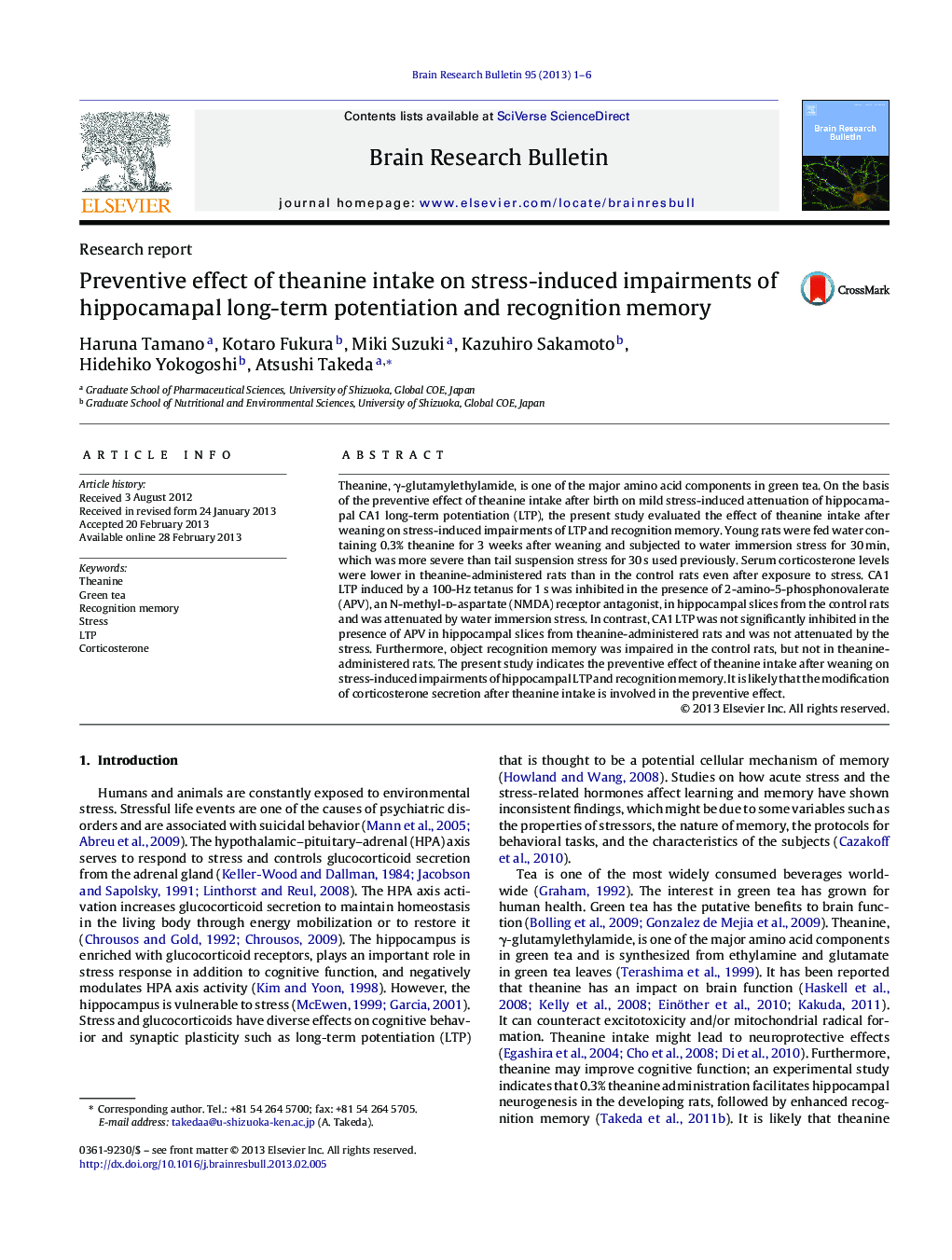| Article ID | Journal | Published Year | Pages | File Type |
|---|---|---|---|---|
| 6261893 | Brain Research Bulletin | 2013 | 6 Pages |
Theanine, γ-glutamylethylamide, is one of the major amino acid components in green tea. On the basis of the preventive effect of theanine intake after birth on mild stress-induced attenuation of hippocamapal CA1 long-term potentiation (LTP), the present study evaluated the effect of theanine intake after weaning on stress-induced impairments of LTP and recognition memory. Young rats were fed water containing 0.3% theanine for 3 weeks after weaning and subjected to water immersion stress for 30 min, which was more severe than tail suspension stress for 30 s used previously. Serum corticosterone levels were lower in theanine-administered rats than in the control rats even after exposure to stress. CA1 LTP induced by a 100-Hz tetanus for 1 s was inhibited in the presence of 2-amino-5-phosphonovalerate (APV), an N-methyl-d-aspartate (NMDA) receptor antagonist, in hippocampal slices from the control rats and was attenuated by water immersion stress. In contrast, CA1 LTP was not significantly inhibited in the presence of APV in hippocampal slices from theanine-administered rats and was not attenuated by the stress. Furthermore, object recognition memory was impaired in the control rats, but not in theanine-administered rats. The present study indicates the preventive effect of theanine intake after weaning on stress-induced impairments of hippocampal LTP and recognition memory. It is likely that the modification of corticosterone secretion after theanine intake is involved in the preventive effect.
⺠Theanine intake decreases serum corticosterone level after stress. ⺠NMDAR-dependence of CA1 LTP is reduced without a decrease in the magnitude of LTP. ⺠Theanine intake rescues stress-induced attenuation of CA1 LTP. ⺠Theanine intake rescues stress-induced impairment of memory. ⺠The less responsiveness to stress may participate in the preventive effects.
